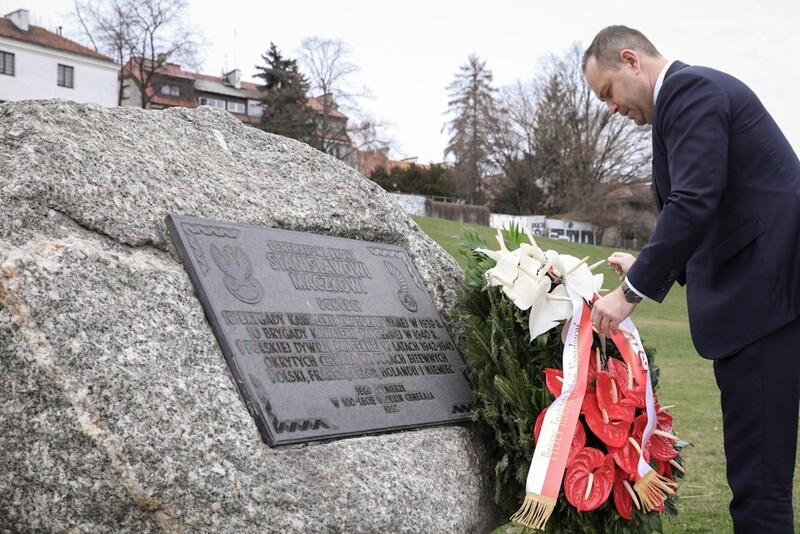General Stanisław Maczek made history as a brilliant army general. He often used to say that „the Polish soldier fights for the freedom of all nations, but dies only for Poland”. The Germans called his army the Black Devils due to the color of the berets and leather jackets they wore but, above all, because of their reckless courage. Stanisław Maczek’s soldiers were the only large unit of the Polish Army retaining its combat capacity in 1939 Defensive War. General Maczek commanded a Polish armored formation in France in 1940. He was the commander of the famous 1st Polish Armored Division, and later of the I Polish Army Corps under Allied Command in the years 1942–1945.
General Maczek achieved a brilliant victory against the Germans in the battles for Mont Ormel, the town of Chambois, and in a series of offensive and defensive operations, which went down in history as the Battle of Falaise.
After this decisive battle, Maczek's Division continued to drive the Allies across the battlefields of northern France, Belgium, the Netherlands and finally Germany. Thanks to an outflanking maneuver, it proved possible to free Breda in the Netherlands after a hard fight but without incurring losses in the town's population.
When the legendary commander General Stanisław Maczek entered Breda leading his troops on 29 October 1944, the city was euphoric and banners saying “Thank you, Poles” appeared on its streets. Dutch women would bring flowers to the soldiers. No wonder that some of them later settled in the Netherlands.
